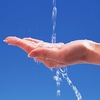Not Sure About the Answer?
Find an answer to your question 👍 “Discuss three factors that affect speed of sound ...” in 📗 Physics if the answers seem to be not correct or there’s no answer. Try a smart search to find answers to similar questions.
Search for Other Answers
You Might be Interested in
2.) A radio wave in a vacuum has a wavelength of 0.045 m. What is its frequency? Sound, EM, Other
Answers (1)
Joe wanted to experiment with different factors that affect the freezing rate of water. He put two cups of water into each of two identical glass bowls. Next, he stirred sugar into the water in one of the bowls, and he put both bowls in the freezer.
Answers (1)
A specimen of steel has a rectangular cross section 20 mm wide and 40 mm thick, an elastic modulus of 207 GPa, and a Poisson's ratio of 0.30.
Answers (1)
The cycle of the moon through its phases, or the synodic month, is a. 21 days long. b. 27 1/3 days long. c. 29 1/2 days long. d. 30 days long.
Answers (1)
0.01 11. A person walks 60 meters in 1 minute. Then walks 30 meters in 2 minutes. What is their average speed over the 3 minute walk? A. 0.5 m/s B. 1 m/s C. 2 m/s D. 5 m/s E. 50 mls
Answers (1)
New Questions in Physics
What is the most advanced life form on earth
Answers (2)
Which EM wave is about the size of humans?
Answers (1)
Describe how the Catapult works?
Answers (2)
Newton's third law of motion states that the force pair acting on different objects consist of two forces that
Answers (1)
While working on her science fair project Venus connected a battery to a circuit that contained a light bulb. Venus decided to change the light bulb to a higher resistance, but she wanted to keep the current the same.
Answers (2)

